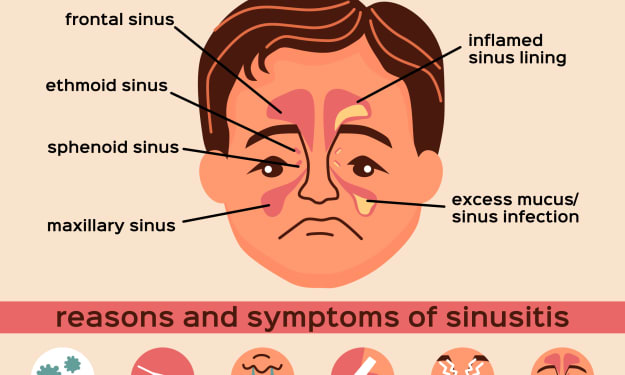Maximizing Your Chances of Fatherhood: How Male Infertility Treatment Can Help
How Male Infertility Treatment Can Help

Introduction
As couples plan to start a family, male infertility is an increasingly common issue. It is estimated that about 50% of infertility cases are due to male factors. While infertility can be a difficult topic to discuss, seeking treatment can increase the chances of conceiving a child. This article will explore the causes and treatments of male infertility, as well as how to maximize the chances of fatherhood. Becoming a father is a dream for many men. However, male infertility can make this dream seem impossible. Male infertility is a condition that affects a man's ability to impregnate his partner. This can have a significant impact on fatherhood. In this article, we will discuss how male infertility treatment can help maximize your chances of becoming a father.
What is Male Infertility?
Male infertility refers to the inability of a man to impregnate a fertile female. This could be due to a low sperm count, poor sperm motility, or abnormal sperm shape. The quality of sperm is crucial in achieving successful fertilization, and any abnormalities could reduce the chances of pregnancy.
Diagnosing male infertility
A. Common causes of male infertility can be caused by a variety of factors, including:
(i) Low sperm count: Introduction: Low sperm count, also known as oligospermia, is a condition in which the semen of a male has fewer sperm than normal. This condition can lead to difficulties in conception and can cause infertility in men. It is estimated that 1 in 20 men suffer from low sperm count, making it a prevalent condition that requires attention.
Poor sperm motility
Abnormal sperm shape
Varicocele
Hormonal imbalances
Genetic factors
B. Tests used to diagnose male infertility, your doctor may recommend a variety of tests, including:
Semen analysis
Hormone testing
Genetic testing
Testicular biopsy
Male infertility treatment options
A. Medications for male infertility
Medications can be used to treat male infertility in some cases. These medications include:
Clomiphene citrate: This medication helps to increase the production of follicle-stimulating hormone (FSH) and luteinizing hormone (LH), which stimulate the testicles to produce more sperm.
Letrozole: This medication is similar to clomiphene citrate and can be used to treat male infertility caused by hormonal imbalances.
Human chorionic gonadotropin (HCG): HCG can be used to stimulate the testicles to produce more testosterone and sperm.
Gonadotropin: Gonadotropin injections can be used to stimulate the production of sperm in men with low sperm counts.
B. Surgery for male infertility
Surgery may be an option for men with anatomical problems that are causing infertility. Some surgical procedures that may be used to treat male infertility include:
Varicocelectomy: This surgery is used to treat varicoceles, which are enlarged veins in the scrotum that can cause infertility.
Vasectomy reversal: This surgery is used to reverse a vasectomy, which is a form of permanent contraception.
Ejaculatory duct resection: This surgery is used to remove blockages in the ejaculatory ducts, which can cause infertility.
C. Assisted Reproductive Technology (ART)
male infertility ART involves using advanced medical techniques to help fertilization occur. Some ART procedures that may be used to treat male infertility include:
Intrauterine insemination (IUI): This procedure involves placing sperm directly into the uterus during ovulation to increase the chances of fertilization.
In vitro fertilization (IVF): IVF involves fertilizing eggs with sperm in a laboratory and then transferring the fertilized embryos into the uterus.
Intracytoplasmic sperm injection (ICSI): This procedure involves injecting a single sperm directly into an egg to increase the chances of fertilization.
Symptoms of Male Infertility
While there may not be any noticeable symptoms of male infertility, some signs may include:
Low sperm count
Abnormal sperm shape or movement
Erectile dysfunction
Pain, swelling, or lumps in the testicles
Diagnosing Male Infertility
To diagnose male infertility, a doctor will conduct a physical exam and take a medical history. They may also order tests such as semen analysis, hormone testing, and genetic testing.
Treating Male Infertility
Fortunately, there are a variety of treatments available for male infertility. The type of treatment will depend on the underlying cause of infertility.
Lifestyle Changes
Making changes to your lifestyle can be a simple and effective way to increase fertility. Quitting smoking, limiting alcohol consumption, and reducing stress can all have a positive impact on fertility.
Medications
Certain medications can help improve sperm production and motility. These include:
Clomiphene citrate
Human chorionic gonadotropin (HCG)
Letrozole
Benefits of Male Infertility Treatment
Male infertility treatment can help increase the chances of successful pregnancy and fatherhood. Here are some benefits of male infertility treatment:
Improved Sperm Quality
Male infertility treatment can help improve sperm quality, which is essential for successful fertilization.
Increased Chances of Pregnancy
By improving sperm quality and quantity, male infertility treatment can significantly increase the chances of pregnancy.
Emotional Benefits
Infertility can cause emotional distress, and male infertility treatment can help reduce anxiety and depression associated with infertility.
IV. Maximizing the chances of fatherhood with male infertility treatment
A. Follow a healthy lifestyle
Maintaining a healthy lifestyle can help to maximize the chances of fatherhood. Some tips for living a healthy life are:
Eating a well-balanced diet with lots of fruits, vegetables, and whole grains.
Getting regular exercise.
Maintaining a healthy weight.
Avoiding smoking and excessive alcohol consumption.
B. Consider genetic testing: In some cases, male infertility may be caused by genetic factors. Genetic testing can help identify these factors and determine the best course of treatment.
C. Get the right treatment: Getting the right treatment is crucial for maximizing the chances of fatherhood. Your doctor can help determine the underlying cause of your infertility and recommend the most appropriate treatment option.
Conclusion
sci Hospital has the best male fertility doctor. who has more experienced and handled many serious clients. Male infertility can have a significant impact on fatherhood, but there are treatment options available that can help maximize the chances of becoming a father. By following a healthy lifestyle, considering genetic testing, and getting the right treatment, men can increase their chances of achieving their dream of fatherhood.
About the Creator
SCI International Hospital
SCI Hospital Super Specialty Hospital In Delhi with the latest equipment and facilities focused on Urology, Genecology & Obstetrics, ENT and Cosmetic Surgeries.






Comments
There are no comments for this story
Be the first to respond and start the conversation.